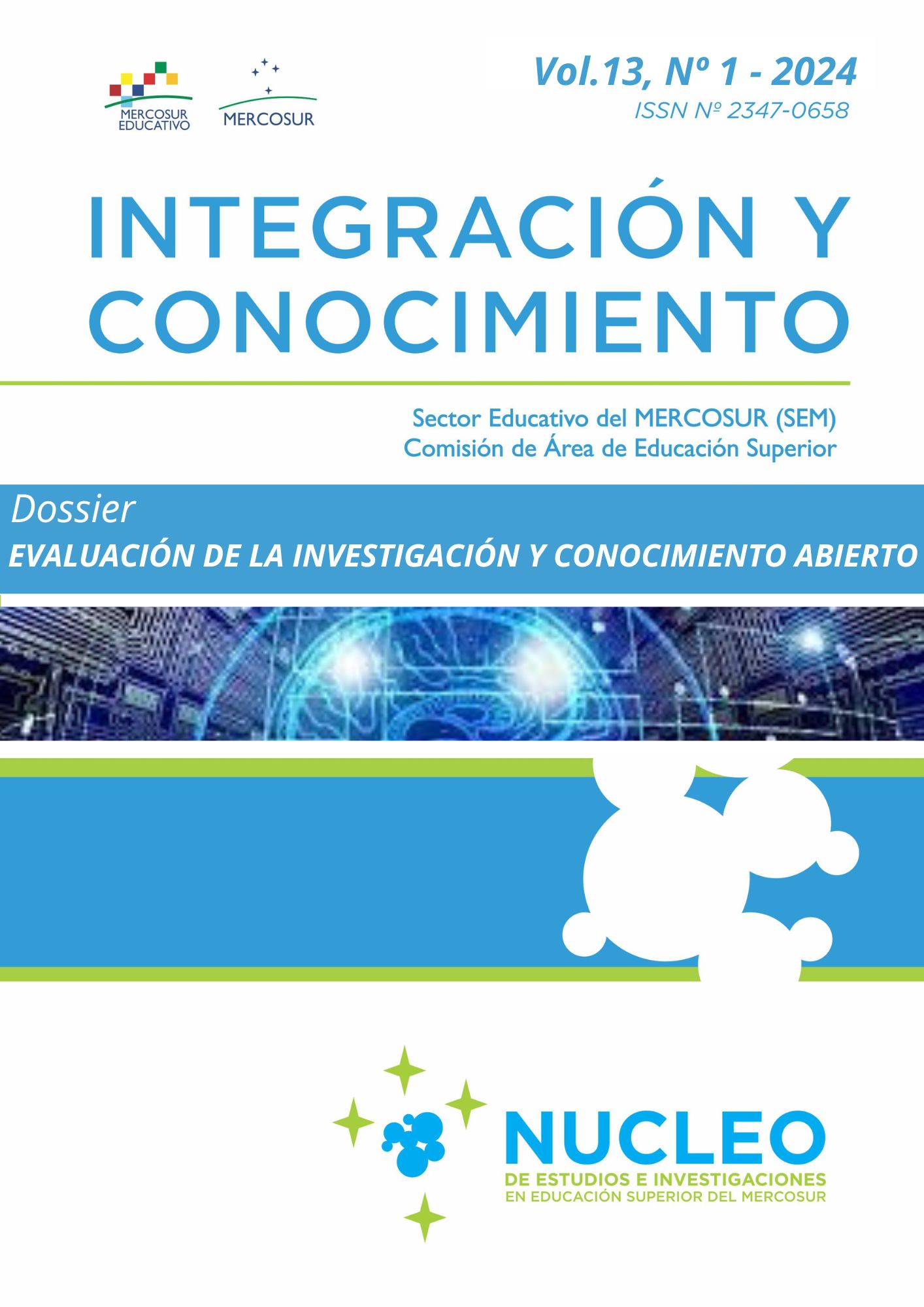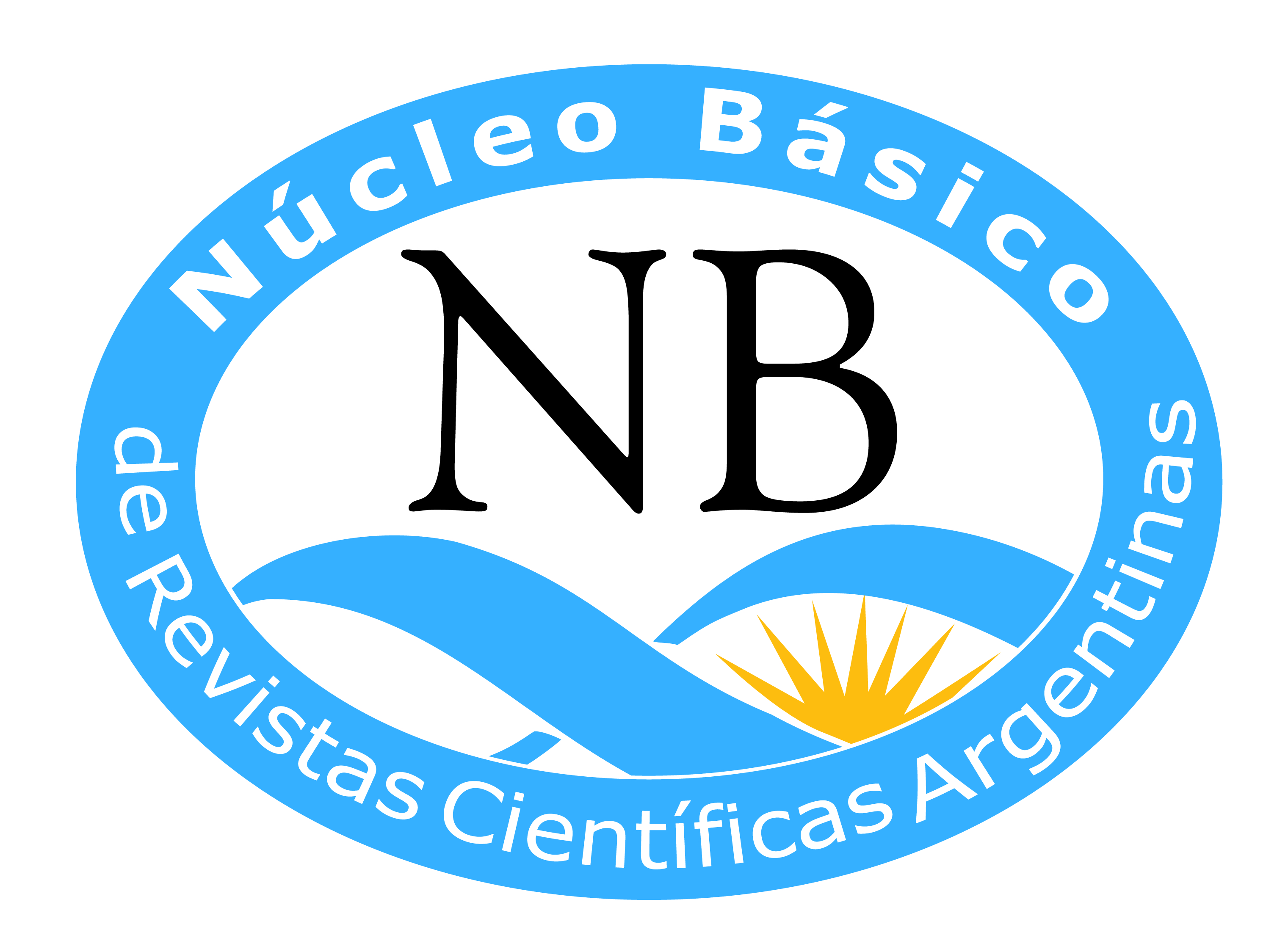RESULTS EVALUATION TO PROSPECT THE RESEARCH
DOI:
https://doi.org/10.61203/2347-0658.v13.n1.44215Keywords:
Research, prospecting, results evaluationAbstract
The objective of the study aimed to demonstrate the contributions of results evaluation for prospecting research, through the explanation of the case study conducted at the Veterinary School at the National University of Costa Rica in the year 2033, in order to assess its limitations and contributions as a method. The theoretical framework that delimited the study was based on the concept of Foresight, which is a tool that explores trends shaping the future of science and technology, contributing to scientific and technological planning and decision-making (Martin, 2010). The methodology employed was of a mixed nature, combining bibliometric techniques for scientific production analysis, as well as the application of expert panels, the Reigner's abacus, and the construction of scenarios for the year 2033 at the Veterinary School. As part of the results, 5 research areas were identified for further development: public health, basic sciences, development and innovation, medicine and surgery, and reproduction. Scenarios were envisioned for each of these areas, and research lines were delineated.
Downloads
References
Alkin, M.C. (ed.). (2004). Evaluation Roots: Tracing Theorists Views and Influences. Thousand Oaks, CA: SAGE.
Bourgeois, R. (2015). A Glossary of Terms commonly used in Futures Studies.
Bourne, P. E., Clark, T. W., Dale, R., de Waard, A., Hovy, E. H., y Shotton, D. (2012). Improving the future of research communications and e-Scholarship (Dagstuhl Perspectives Workshop 11331). Dagstuhl Manifestos, 1(p. 1).
Butler, L. (2007). Assessing University Research: A Plea for a Balanced Approach. Science and Public Policy, 34(8), 565–74.
Escuela de Medicina Veterinaria. (2023). Portafolio de Líneas de Investigación. Universidad Nacional. Heredia. Costa Rica.
Global Center for Public Service Excellence. (GCPSE). (2018). Empowered Futures for the 2030 Agenda. UNDP Global Centre for Public Service Excellence, 50.
Guba, E. G., y Lincoln, Y. S. (2011). Avaliação de quarta geração. Campinas: Unicamp.
Link, A. N., y Vonortas, N. S. (Eds.). (2013). Handbook on the theory and practice of program evaluation. Edward Elgar Publishing.
Martin, B. R. (2010). The origins of the concept of ‘foresight’ in science and technology: An insider's perspective. Technological Forecasting and Social Change, 77(9), 1438-1447.
Medina, J., Becerra, S., y Castaño, P. (2014). Prospectiva y política pública para el cambio estructural en América Latina y el Caribe. Cepal.
Miles, I. (2010). The development of technology foresight: A review. Technological Forecasting and Social Change, 77(9), 1448-1456.
Miles, I., Meissner, D., Vonortas, N. S., y Carayannis, E. (2017). Technology foresight in transition. Technological Forecasting and Social Change, 119, 211-218.
Montero, C., Monge Hernández, C., y Herrera, J. (2022). Agenda Universitaria de Evaluación y Planificación de la Universidad Nacional. Universidad Nacional. Recuperado de: https://repositorio.una.ac.cr/handle/11056/23907
Monge Hernández, C. (Noviembre, 2020). Evaluar la ciencia: ¿para qué? Ponencia presentada en: Coloquio Internacional “Asimetrías del conocimiento. Producción, circulación, impactos, organizado por Ibero-Amerikanisches Institut, el Instituto de Investigación sobre Conocimiento y Políticas Públicas (CPP-CIC) y la Biblioteca del Congreso de la Nación Argentina. Recuperado de http://hdl.handle.net/11056/22706
Monge Hernández, C., Valderramos Vásques, E., Cuadra Navarro, G., y Fernández Días, M. (2022). Evaluación estratégica del Impacto Político de la Universidad Nacional. Heredia: Vicerrectoría de Investigación. Recuperado de http://hdl.handle.net/11056/24671
Morgan Jones, M., Manville, C., y Chataway, J. (2017). Learning from the UK’s research impact assessment exercise: a case study of a retrospective impact assessment exercise and questions for the future. The Journal of Technology Transfer, 1-25.
Müller, R., y de Rijcke, S. (2017). Thinking with indicators. Exploring the epistemic impacts of academic performance indicators in the life sciences. Research Evaluation, 26(3), 157-168.
Muraro Da Silva, V. (2021). Futures Studies and Foresight for Science, Technology and Innovation: Trends of using Big Data and Machine Learning. Tesis Doctoral. UNICAMP.
Popper, R. (2008). How are foresight methods selected? Foresight, 10(6), 62-89.
Puertas de García, M. (2008). Diseño de líneas de investigación en las Instituciones Universitarias, Biblioteca las casas, 4(1). Recuperado de http://www.index-f.com/lascasas/documentos/lc0300.php
Saritas, O. (2013). Systemic foresight methodology. En D. Meissner., L. Gokhberg., A. Sokolov. (Edits.). Science, technology and innovation policy for the future: Potentials and limits of foresight studies (83-117). Moscú, Rusia: Springer
Saritas O., y Smith J. (2011). The Big Picture – trends, drivers, wild cards, discontinuities and weak signals. Futures, 43(3), 292-312.
Shadish, W., Cook, TD., y Leviton, LC. (1991). Foundations of Program Evaluation: Theories of Practice. Thousand Oaks, CA: SAGE.
Stern, N. (2016). Building on success and learning from experience: An independent review of the Research Excellence Framework.
Van Duijne, F., y Bishop, P. (2018). Introduction to strategic foresight. Future, 1 (67).
Downloads
Published
How to Cite
Issue
Section
License
Copyright (c) 2024 Integración y Conocimiento

This work is licensed under a Creative Commons Attribution-NonCommercial-ShareAlike 4.0 International License.
Authors who have publications with this journal accept the following terms:
a. Authors shall retain their copyright and guarantee the journal the right of first publication of their work, which shall simultaneously be subject to the Creative Commons License of Recognition which allows third parties to share the work as long as its author is indicated and its first publication is this journal.
b. Authors may adopt other non-exclusive licensing agreements for the distribution of the published version of the work (e.g., depositing it in an institutional telematic archive or publishing it in a monographic volume) provided that the initial publication in this journal is indicated.
c. Authors are allowed and encouraged to disseminate their work via the Internet (e.g. in institutional telematic archives or on their website) after publication of the article, which may lead to interesting exchanges and increased citations of the published work. (See The Effect of Open Access).



